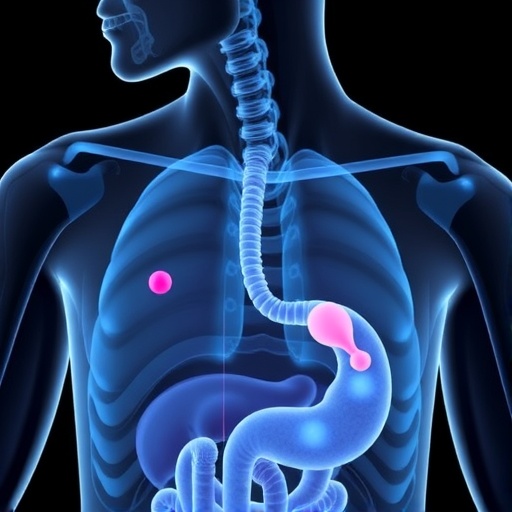In an era where personalized medicine is rapidly advancing, the quest for reliable biomarkers that can effectively predict cancer outcomes is paramount. A groundbreaking meta-analysis published in the renowned journal BMC Cancer highlights the significant prognostic potential of the hemoglobin, albumin, lymphocyte, and platelet (HALP) score in digestive system cancers. This comprehensive study consolidates evidence from multiple research efforts to establish HALP as a robust indicator of survival prospects, potentially revolutionizing clinical decisions in oncology.
Digestive system cancers, encompassing malignancies of the esophagus, stomach, liver, pancreas, and colorectal regions, represent a substantial global health challenge due to their aggressive nature and high mortality rates. Traditional prognostic tools often fall short in providing precise predictions, emphasizing the need for innovative biomarkers that integrate immune and nutritional status—key factors influencing cancer progression and patient resilience. The HALP score, derived from routine blood parameters, encapsulates this integration, offering clinicians a convenient yet powerful prognostic instrument.
This meta-analysis rigorously examined data from 30 distinct articles, aggregating findings from 34 studies with an impressive cohort of 9,389 patients diagnosed with various digestive system cancers. Researchers meticulously extracted pre-treatment HALP scores and correlated these values with critical survival metrics, such as overall survival (OS), disease-free survival (DFS), recurrence-free survival (RFS), cancer-specific survival (CSS), and progression-free survival (PFS). This extensive dataset enabled a nuanced evaluation of HALP’s prognostic relevance across diverse cancer subtypes and treatment settings.
The results were compelling. Patients with elevated HALP scores consistently exhibited significantly improved survival outcomes across all measured categories. Specifically, the pooled hazard ratio (HR) for overall survival was 1.762, indicating that higher HALP scores nearly doubled the likelihood of long-term survival compared to lower scores. Similar robust associations were observed for DFS (HR=1.841), RFS (HR=1.583), CSS (HR=1.930), and PFS (HR=1.444). These findings underscore the score’s capacity to reflect underlying biological processes that directly impact tumor control and patient prognosis.
The strength of the HALP score lies in its composite nature, integrating four hematological and nutritional markers. Hemoglobin levels reflect the oxygen-carrying capacity and general health status of patients, while albumin serves as a marker of nutritional reserve and systemic inflammation. Lymphocytes denote immune competence, essential for antitumor activity, and platelets contribute to tumor growth and metastasis through their involvement in clotting and vascular processes. The HALP score, therefore, encapsulates a multifaceted portrait of patient condition, surpassing the prognostic capabilities of individual parameters.
Subgroup analyses further validated HALP’s prognostic utility irrespective of treatment modalities or specific digestive cancer types. Whether patients underwent surgery, chemotherapy, radiotherapy, or multidisciplinary approaches, a high HALP score remained a positive prognostic indicator. This universality enhances the score’s clinical appeal, suggesting its potential as a standard tool in oncology settings worldwide.
Significant attention was devoted to assessing the reliability of these conclusions through sensitivity analyses and bias evaluations. The meta-analysis’ rigorous methodology, with a non-significant bias test (P=0.103), confirms that the aggregated results are scientifically sound and replicable. Such methodological diligence instills confidence in adopting HALP as a prognostic biomarker.
The clinical implications of these findings are profound. Integrating the HALP score into routine pre-treatment evaluations could refine risk stratification, guide therapeutic decisions, and personalize follow-up protocols. Patients identified with low HALP scores may benefit from more aggressive or tailored interventions, while those with high scores might avoid overtreatment, minimizing adverse effects and healthcare costs.
Despite the promise demonstrated, the study authors advocate for future research to establish standardized protocols for HALP score measurement and interpretation. Prospective multicenter trials enrolling diverse patient populations are essential to corroborate these observations and facilitate clinical implementation. Furthermore, exploring HALP’s predictive power in conjunction with emerging molecular and genetic biomarkers could yield an even more comprehensive prognostic framework.
The accessibility of the HALP score, derived from commonplace blood tests, enhances its feasibility, especially in resource-constrained settings where sophisticated diagnostic tools may be unavailable. Its cost-effectiveness and ease of integration into existing workflows make it an attractive candidate for widespread adoption, potentially narrowing disparities in cancer care outcomes worldwide.
The convergence of nutritional and immunological parameters within the HALP score reflects a broader recognition of cancer’s systemic complexity. Tumor biology cannot be fully understood or managed without considering the host’s physiological milieu, including factors such as inflammation, immunity, and metabolic status. HALP epitomizes this holistic approach, aligning with current trends towards integrative oncology.
In a landscape crowded with potential biomarkers, the HALP score distinguishes itself through robust evidence, clinical practicality, and biological relevance. Its predictive capacity transcends individual cancer types, delivering a universally applicable tool for digestive system malignancies that challenges and complements existing prognostic frameworks.
In conclusion, the accumulated evidence establishes the HALP score as a significant prognostic biomarker, with potential to shape the future of cancer care by enabling precision medicine tailored to individual patient profiles. As research advances and validation studies progress, HALP promises to become an indispensable component of oncological practice, improving survival outcomes and quality of life for patients burdened by digestive system cancers.
Subject of Research: Prognostic biomarkers in digestive system cancers
Article Title: The significant prognostic value of the hemoglobin, albumin, lymphocyte, and platelet (HALP) score in digestive system cancers: a systematic review and meta-analysis
Article References:
Qian, C., Liu, J., Meng, C. et al. The significant prognostic value of the hemoglobin, albumin, lymphocyte, and platelet (HALP) score in digestive system cancers: a systematic review and meta-analysis. BMC Cancer 25, 1577 (2025). https://doi.org/10.1186/s12885-025-15068-x
Image Credits: Scienmag.com
DOI: https://doi.org/10.1186/s12885-025-15068-x
Tags: cancer research and patient resilienceclinical impact of HALP scoredigestive cancer mortality ratesHALP score digestive cancer outcomeshemoglobin albumin lymphocyte plateletimmune nutritional status and cancerinnovative cancer prognostic toolsmeta-analysis of digestive system cancerspersonalized medicine in cancer treatmentprognostic biomarkers in oncologyroutine blood parameters in oncologysurvival predictions for digestive cancers





